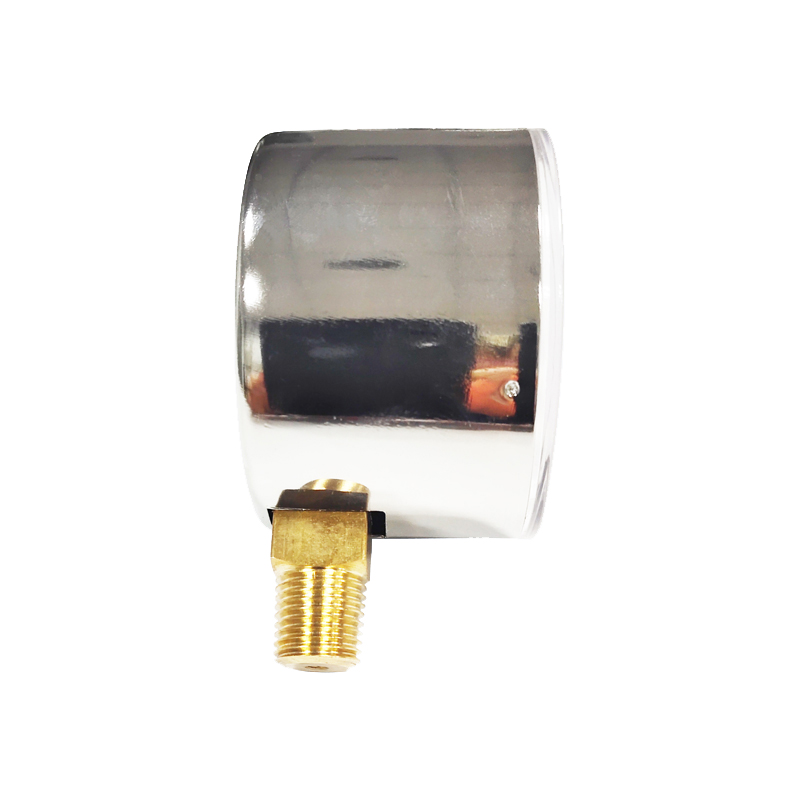
Dec . 26, 2024 06:30 Back to list
Examining Various Types of Differential Pressure Gauges in Manufacturing Settings
Types of Differential Pressure Gauges A Comprehensive Overview
Differential pressure gauges are essential instruments used across various industries to measure the difference in pressure between two points within a system. These devices play a crucial role in monitoring and controlling fluid flow, ensuring optimal performance and safety in applications ranging from HVAC systems and water treatment facilities to oil and gas operations. This article explores the different types of differential pressure gauges, their applications, and key considerations for selection.
1. Mechanical Differential Pressure Gauges
Mechanical differential pressure gauges, often referred to as Bourdon tube gauges, use a flexible metal tube that bends in response to pressure changes. The bending of the tube drives a mechanical pointer on a dial display, indicating the differential pressure. These gauges are reliable, durable, and suitable for a wide range of fluids and environments.
Applications Mechanical gauges are commonly used in HVAC systems, pneumatic systems, and even in the monitoring of filters and strainers, providing a straightforward and cost-effective solution for pressure measurements.
2. Electronic Differential Pressure Gauges
Electronic differential pressure gauges utilize electronic sensors to measure pressure differences. These devices convert pressure readings into electrical signals that can be displayed digitally. This type of gauge often provides additional features such as data logging, remote monitoring, and advanced alarming capabilities.
Applications Electronic gauges are favored in environments where precise and continuous monitoring is required, such as in cleanroom environments, pharmaceutical processes, and sophisticated manufacturing systems. Their ability to integrate with digital systems makes them increasingly popular in modern industrial applications.
3. Capacitive Differential Pressure Gauges
Capacitive differential pressure gauges work by measuring changes in capacitance caused by movement of a diaphragm separating two pressure points. As the pressure changes, the diaphragm moves, altering the capacitance, which can be translated into a pressure reading.
Applications These gauges are well-suited for low-pressure applications and are particularly useful in research laboratories or environments where high precision is necessary. They can measure very small pressure differences accurately, making them ideal for sensitive processes.
types of differential pressure gauges factory

4. Strain Gauge Differential Pressure Sensors
Strain gauge sensors operate by detecting the strain that occurs in a material as a result of pressure differences. When pressure is applied, the strain gauge deforms, and the resulting change in electrical resistance is used to calculate the pressure differential.
Applications Strain gauge sensors can measure both static and dynamic pressure differences, making them effective in applications involving fluctuating pressures. They are widely used in the oil and gas industry, aerospace applications, and in any situation where durability and reliable data are paramount.
5. Membrane Differential Pressure Gauges
Membrane or diaphragm differential pressure gauges utilize a flexible membrane that separates the two pressure points. Changes in pressure cause the diaphragm to deflect, which is measured and translated into a pressure reading.
Applications These gauges are particularly useful in harsh environments or with corrosive media, as the diaphragm can be made from various materials to withstand different substances. They are commonly employed in chemical process industries and waste treatment facilities.
Key Considerations for Selection
When selecting a differential pressure gauge, various factors should be considered
- Pressure Range Understanding the specific pressure range you will be measuring is critical for choosing a suitable gauge. - Fluid Type Different gauges are compatible with different fluids; some may not work well with corrosive materials. - Environmental Conditions Factors like temperature, humidity, and potential exposure to contaminants can affect performance and durability. - Accuracy and Precision Depending on the application, the required level of accuracy can vary significantly. - Installation and Maintenance Some gauges require more complex installation and maintenance than others, which can impact long-term operational costs. Conclusion
Differential pressure gauges are integral to ensuring the efficient management of processes across various sectors. By understanding the different types of gauges available—mechanical, electronic, capacitive, strain gauge, and membrane—industry professionals can choose the right device for their specific needs. Proper selection and application of differential pressure gauges will enhance safety, reliability, and efficiency in any operational workflow.
-
High-Quality Pressure Gauge on Fire Extinguisher - Reliable Water Fire Extinguisher Pressure Gauge Suppliers & Exporters
NewsJul.08,2025
-
High-Quality Water Pressure Differential and Gauge Kit Reliable Manufacturers & Competitive Quotes
NewsJul.08,2025
-
High-Precision Digital Diaphragm Pressure Gauge – Reliable Manufacturer & Competitive Quotes
NewsJul.07,2025
-
Wholesale Diaphragm Pressure Gauge Supplier - Premium Quality & Competitive Price
NewsJul.07,2025
-
Digital Diaphragm Pressure Gauge Reliable & Precise Measurement Top Manufacturers Quotes
NewsJul.06,2025
-
High Accuracy Piston Type Differential Pressure Gauge - Reliable Manufacturers & Competitive Quotes
NewsJul.06,2025
